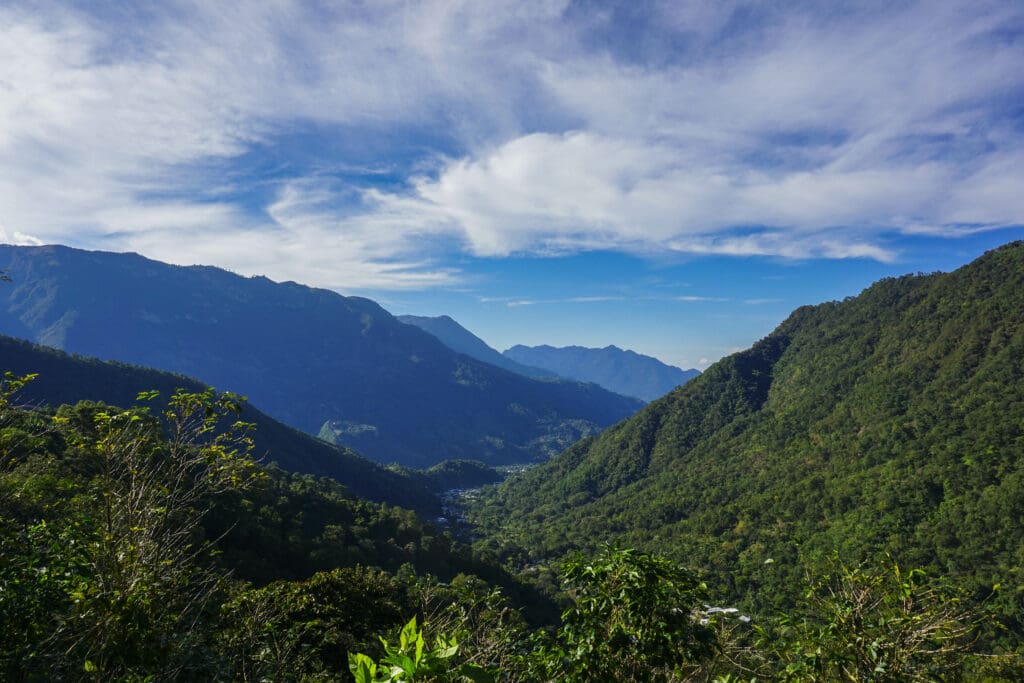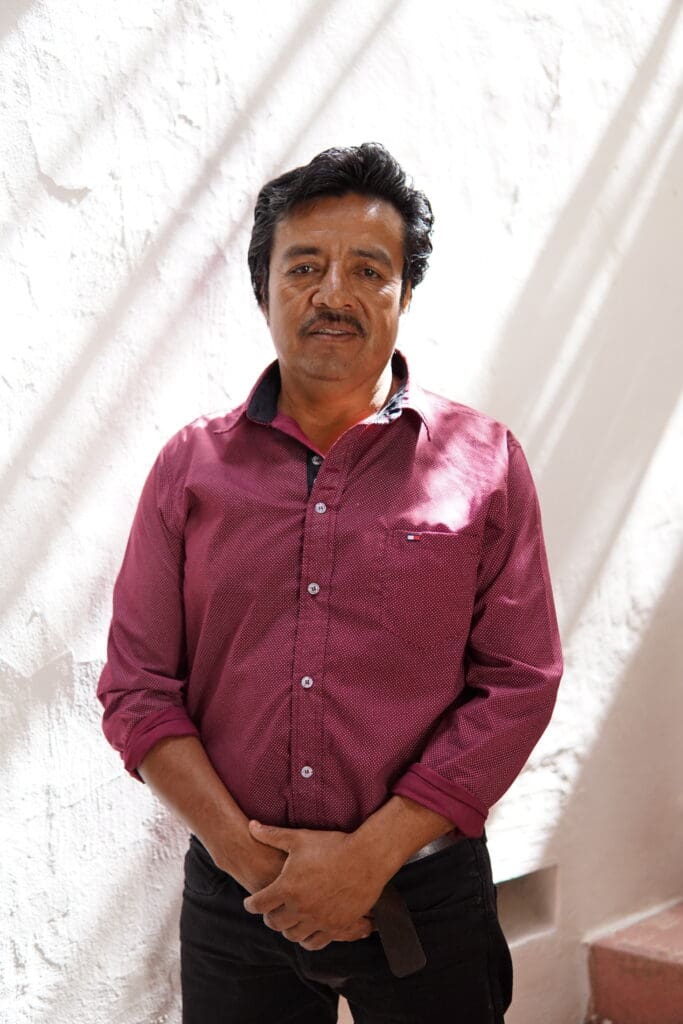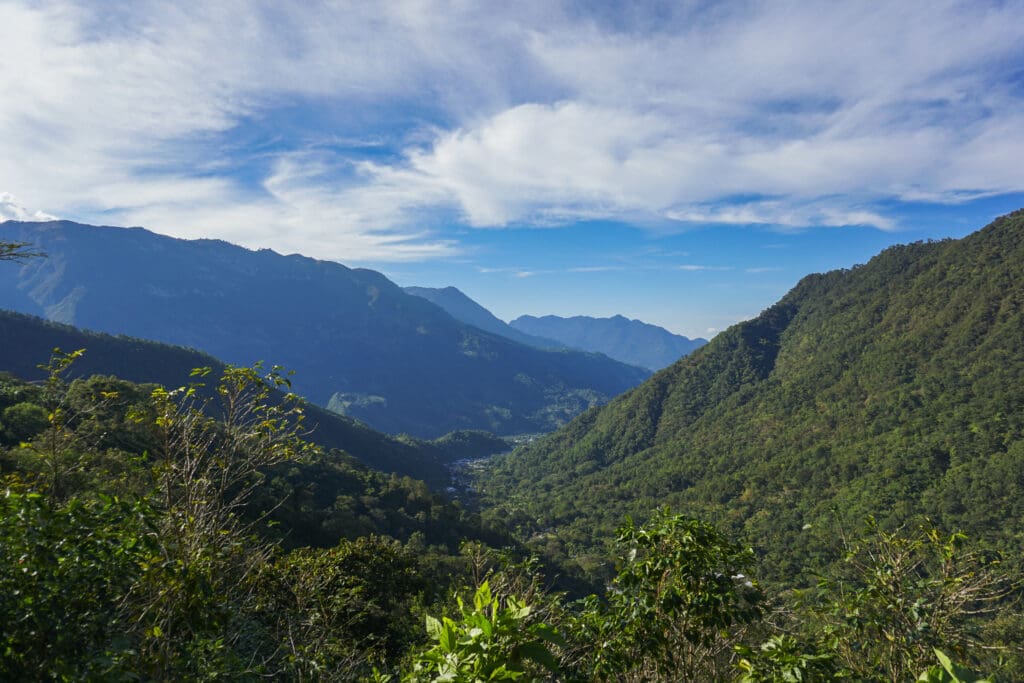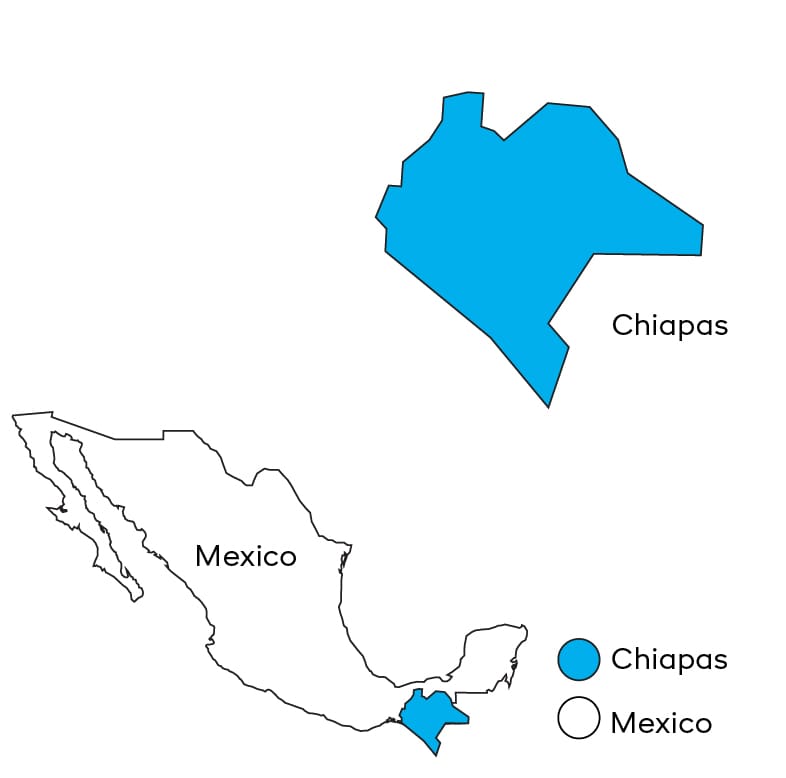Marcelino Pérez, a 50-year-old coffee producer, is deeply rooted in his craft, shaped by years of experience and family ties. As one of three siblings, Marcelino is married with three children, and his journey in coffee began at the young age of 14. It was his uncle, a landlord on the very land Marcelino now cultivates, who taught him the art of coffee production. Among the many varieties, Marcelino holds a special fondness for Bourbon, appreciating its noble cultivation process and exceptional quality.
Marcelino’s coffee plantation is nestled on the slopes of the Tacana volcano, within the Las Nubes ejido. The rich volcanic soils and abundant shade provide the ideal environment for growing high-quality coffee. However, the area’s extreme humidity and challenging access make it difficult to process the coffee on-site. As a result, Marcelino transports his harvest to his home in the urban area of Cacahoatan, where he carefully processes and dries the beans.
The relationship with Don Marcelino is built on trust and collaboration, forming part of the Base Producer group—a select group of producers with whom Cafeología has worked closely since the company’s inception. Together, they have initiated and managed new projects and innovative practices. Over the past three harvests, this partnership has flourished, bringing out the best in Marcelino’s coffee.
His coffee undergoes a natural process, beginning with 48 hours of fermentation in plastic containers. It is then dried under direct sunlight on raised beds for 30 days, ensuring the beans develop their unique flavor profile.





